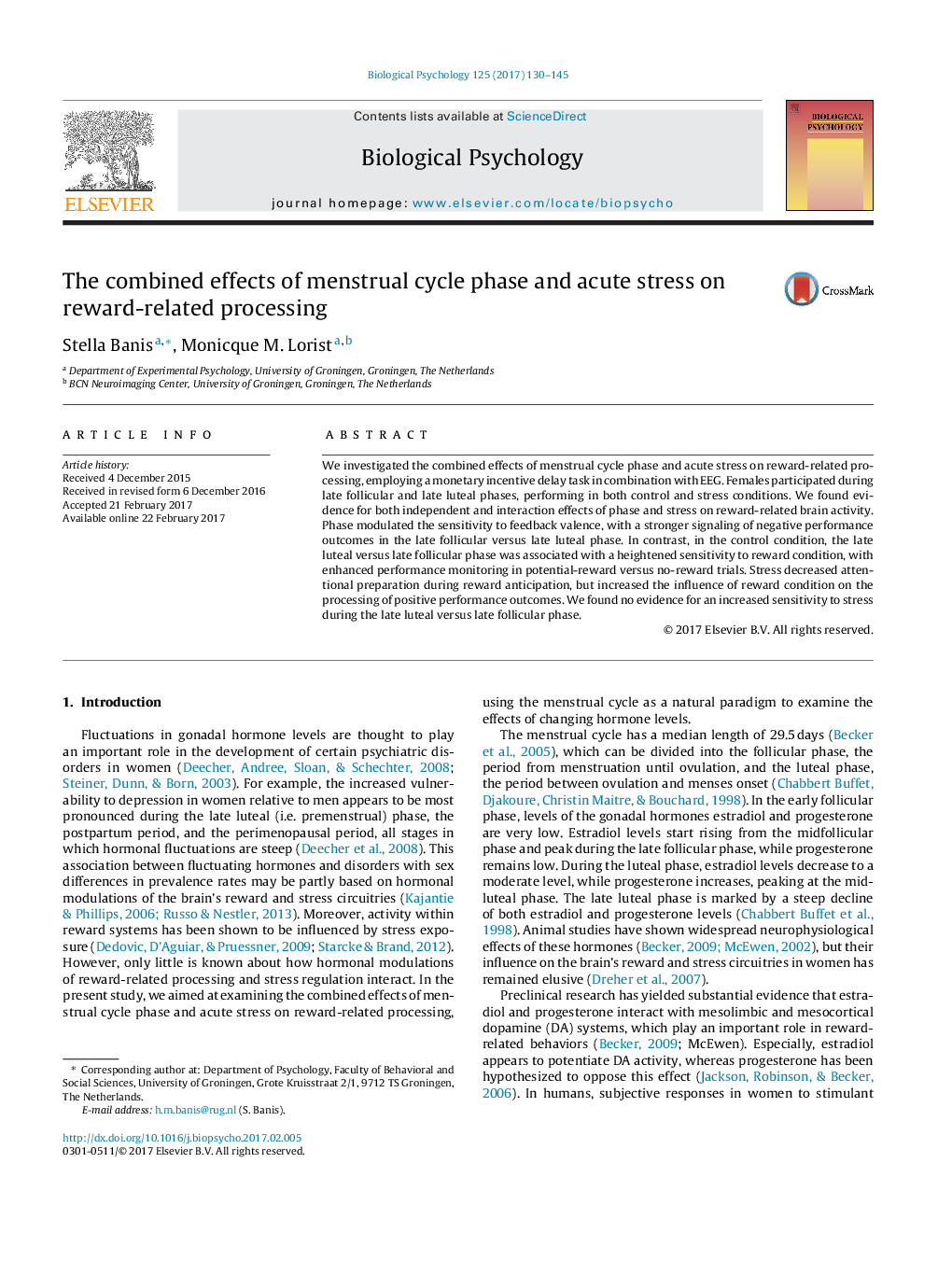| Article ID | Journal | Published Year | Pages | File Type |
|---|---|---|---|---|
| 5040410 | Biological Psychology | 2017 | 16 Pages |
â¢Late follicular phase is associated with heightened sensitivity to feedback valence.â¢Late luteal phase is associated with heightened sensitivity to reward prospect.â¢No support for increased stress sensitivity in late luteal phase in healthy women.â¢Acute stress impairs attentional preparation to upcoming stimuli.â¢Acute stress enhances impact of reward condition on positive feedback processing.
We investigated the combined effects of menstrual cycle phase and acute stress on reward-related processing, employing a monetary incentive delay task in combination with EEG. Females participated during late follicular and late luteal phases, performing in both control and stress conditions. We found evidence for both independent and interaction effects of phase and stress on reward-related brain activity. Phase modulated the sensitivity to feedback valence, with a stronger signaling of negative performance outcomes in the late follicular versus late luteal phase. In contrast, in the control condition, the late luteal versus late follicular phase was associated with a heightened sensitivity to reward condition, with enhanced performance monitoring in potential-reward versus no-reward trials. Stress decreased attentional preparation during reward anticipation, but increased the influence of reward condition on the processing of positive performance outcomes. We found no evidence for an increased sensitivity to stress during the late luteal versus late follicular phase.
